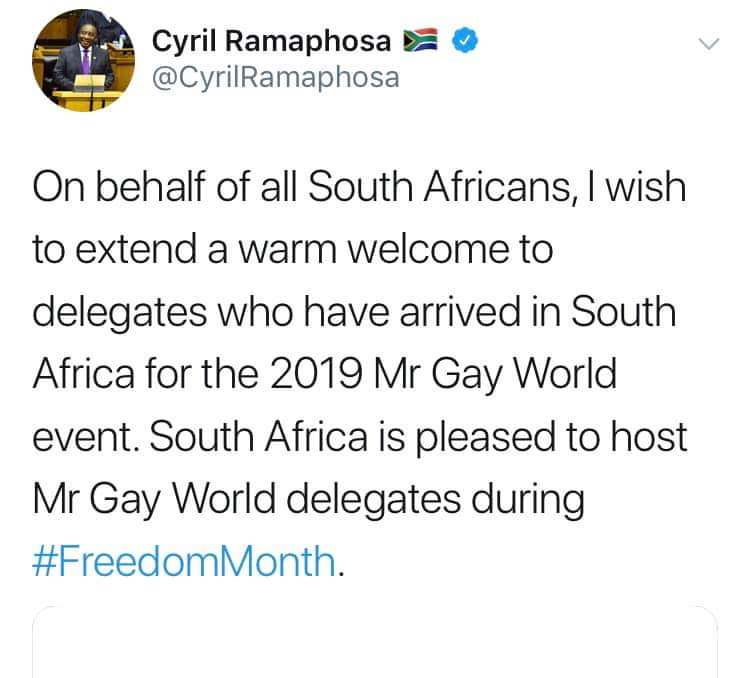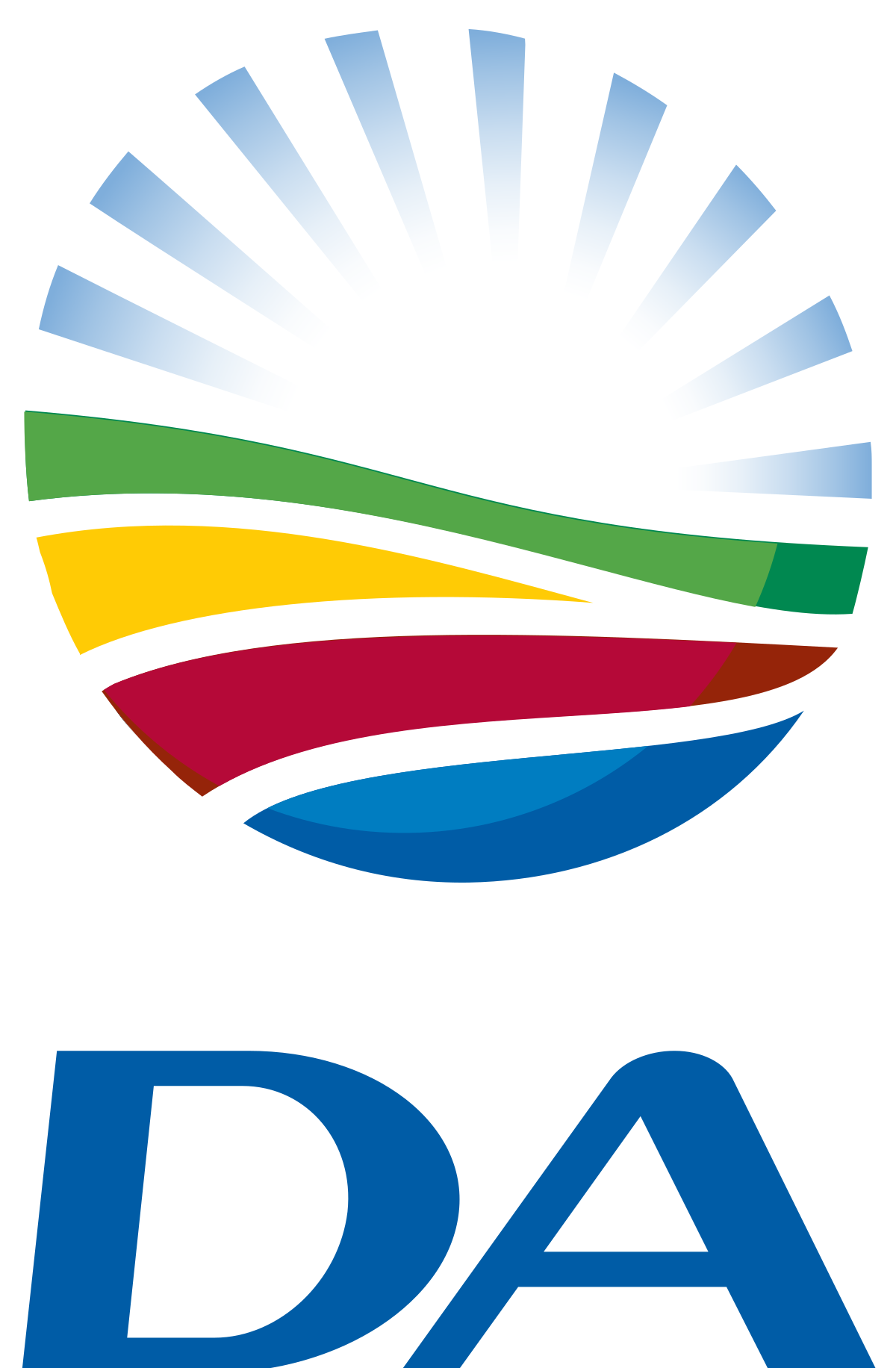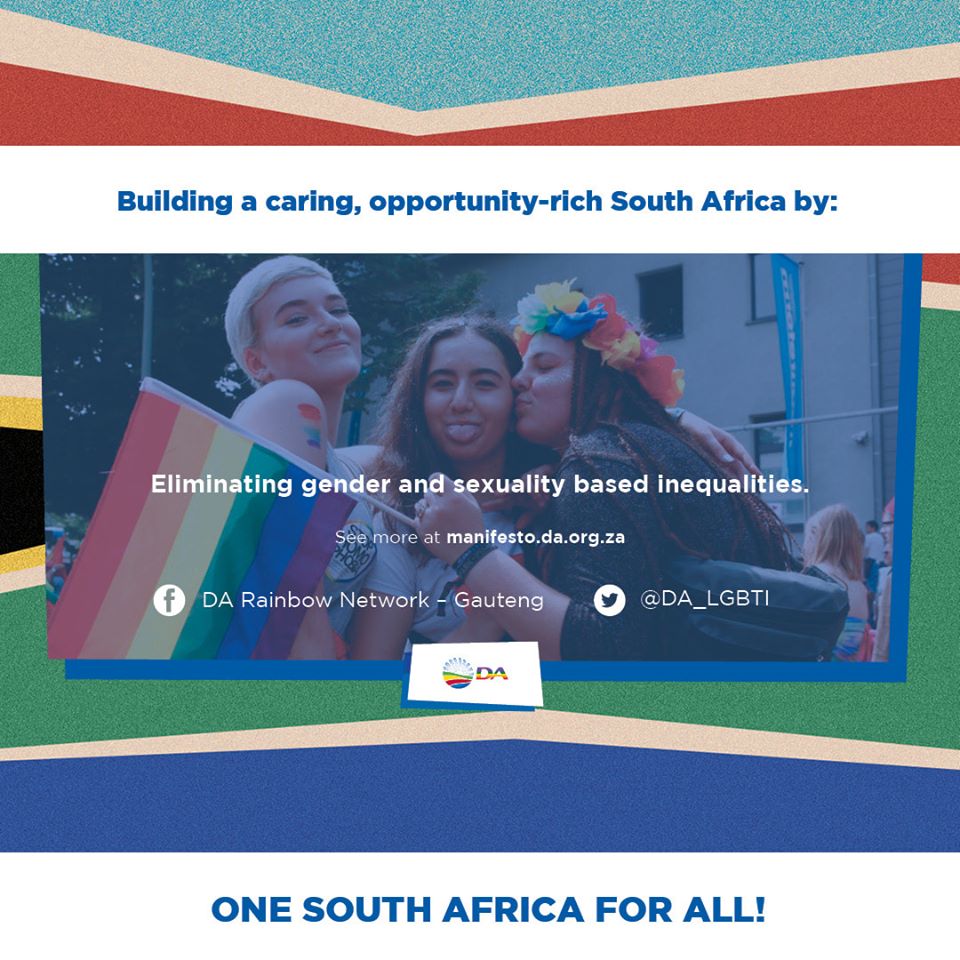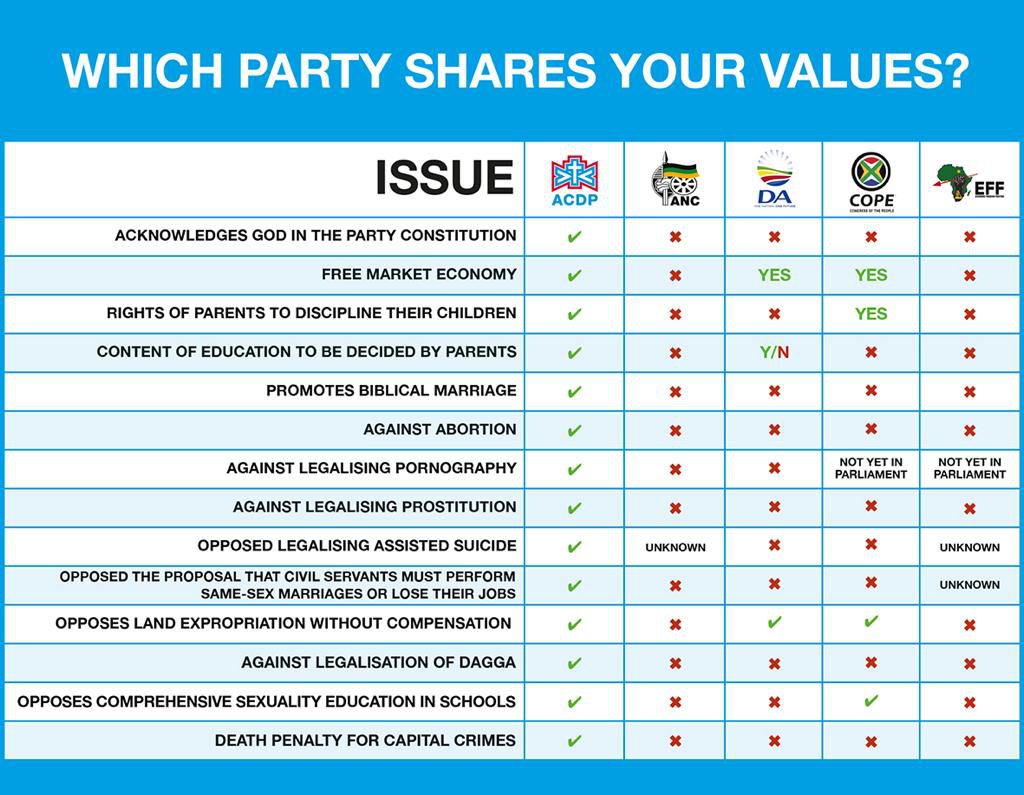With less than a week to go before South Africa’s National Elections on 8 May 2019, electioneering by our myriad political parties is at its peak.
But what lies behind the slogans, manifestos and promises? Given that South Africa, despite ostensibly progressive laws and protections in favour of LGBTI+ persons, remains a dangerous place for many queer citizens and migrants, and that the community is often under-served or overlooked, LGBTI+ voters are increasingly looking at what parties are planning on doing for the LGBTI+ community, as well as their past track records.
Below is a summary of some of the parties most vocal about LGBTI+ issues (ANC, DA, EFF, COPE, ACDP) have said or done recently.

ANC
The African National Congress, which has 249 seats, has remained largest political party since South Africa’s first democratic elections in 1994, is the ruling party of the country and as such has much control over national and international policies and actions.

Pros:
- In 1993, endorsed in the Bill of Rights the legal recognition of same-sex marriages and later supported the inclusion in the constitution of a prohibition of discrimination on the basis of sexual orientation.
- Over two decades has supported a number of reforms, from extending parental leave to same-sex parents, to amending Section 6 of the Civil Union Act which had allowed civil servants to turn away same-sex couples.
- In 2011 proposed a UN resolution speaking out against discrimination on the basis of sexual orientation of gender-identity.
- Appointed the first openly-lesbian Cabinet Minister, Lynne Brown.
- Adopting the Prevention and Combating of Hate Crimes and Hate Speech Bill, which would include LGBTI groups as being protected from hate speech.
- As government has implemented a National Task Team (NTT), Provincial Task Teams (PTTs) and Rapid Response Team (RRT) to address hate crimes against LGBTI persons.
- ANC President Cyril Ramaphosa spoke of the importance of including LGBTI persons in campaigns against gender-based violence in his 2019 State of the Nation Address
- In 2017 Cyril Ramaphosa said “It is a sad truth that in our nation the LGBTI community are amongst the most vulnerable and marginalised. They suffer discrimination, violence and abuse. We must as a nation do better than what we are now. We are all born the way we are. We need to support, embrace and respect each other. When we treat each other with dignity, we are all more dignified.”
- In 2019 voted in favour of a UN resolution to protect women and girls in sport, with the specific inclusion of intersex women.
Cons:
- The party has been criticised for not doing enough, with South Africa’s anti-LGBTI violence being among the most prevalent in the region.
- LGBTI+ rights violations persist at the Department of Home Affairs, South African Police Service and other government institutions.
- Intersex Genital Mutilation (IGM) and intersex infanticide remain prevalent.
- Access to safe, dignified medical care for all South Africans, but especially transgender and intersex persons (the latter of which often face violent, unnecessary surgeries as children) remains a key issue in South Africa as well.
- Multiple instances of silence in the face of human rights abuses by allies such as Russia, Uganda and Tanzania.
- Abstained in 2016 from a UN vote on the appointment of an expert to monitor global LGBTI+ human rights violations.

DA
The Democratic Alliance is the second largest Party currently represented in Parliament with 89 seats, and holds power in the Western Cape province, as well as Johannesburg and Tshwane Metropolitan Municipalities. The DA has in recent years worked to frame itself as the official opposition, and the Party of choice for LGBTI+ South Africans.

Pros:
- Vocal opposition to government’s shortfalls in LGBTI+ policy and silence on matters of international LGBTI+ human rights.
- Dedicated LGBTI+ page on party website which states that “more needs to be done to create safe and non-discriminative environments, at work and at home, and in at-risk communities across the African continent.”
- includes contact details for Xolile Chamane, the DA’s “LGBTIQ+ Coordinator”.
- Elected the first openly gay MP to Parliament, Zakhele Mbhele, in 2014.
- Openly supports LGBTI+ identities by flying the Pride flag at various municipalities during Pride Month and throughout the year.
- Party’s 2019 manifesto commits the DA to “combat discrimination against the LGBTIQ+ community and promote the community’s rights by: Creating safe and non-discriminative environments and ensuring government makes opportunities for dialogues on identities and sexuality; Providing LGBTIQ+ sensitisation training in government services, schools and communities; Enforce a more strident stance on corrective rape and LGBTIQ+ related hate crimes by viewing these as aggravating circumstances when considering sentencing; Promoting the human rights of LGBTIQ+ people in Africa and around the world; Implementing specific education programmes to tackle bullying and harassment in schools as LGBTIQ+ youth are not adequately protected by anti-bullying initiatives; Ending the discriminatory treatment of LGBTIQ+ families in adoptions and protect LGBTIQ+ elders against discrimination.”
Cons:
- DA leader Mmusi Maimane has long been criticised for attending a church with a history of homophobia which he has not yet disavowed.
- When pressed to expand on manifesto policy on social media, the DA LGBTI Forum failed to demonstrate how pro-LGBTI+ policies may look in practice.

EFF
The Economic Freedom Fighters, formed after leader Julius Malema was expelled from the ANC for a number of controversial statements and behaviours, has 25 seats in Parliament, proving to popular among the left and the youth of South Africa.

Pros:
- Has spoken strongly in support of protecting LGBTI+ rights since its foundation as a party, and has supported numerous policies to this effect.
- Spoke out strongly against LGBTI+ discrimination in Uganda when the government did not.
- In 2019 promoted Seoketsi Mooketsi, a trans activist, as the party’s “Woman Crush Wednesday” for her ongoing work for transgender rights in rural areas of South Africa.
- 2019 manifesto states that “The EFF government will aggressively engage in public awareness and communication strategies and training interventions all aimed at or directed towards positively changing social norms which declare LGBTQI sexual preferences as abnormal; The EFF government will amend the Criminal Law Amendment Act and existing legislation to include harsher minimum sentences for ‘corrective’ rape specifically, or crimes committed with hatred as motivation in general; The EFF government will also amend the Sex Description Act and related legislation to ensure the Home Affairs Department expedites ID alteration applications for transgender applicants; The EFF government will invest in a public health care system that ensures easy access to gender-affirming treatment; The EFF government will decisively enforce the Equality Act and related legislation to end unfair discrimination by government and private organisations in relation to the employment of women and the LGBTQI community; The EFF government will amend the Facilities Regulations Act and related regulations to enable the implementation of gender-neutral toilet facilities in schools, public facilities and workplaces to benefit transgender populations and people outside of the gender binary; The EFF government will amend the Child Care Act and related legislation to impose penalties for unfair discrimination against LGBTQI individuals in relation to adoption processes.
Cons:
- Despite positive policies, the EFF fails to actively fight anti-LGBTI sentiment expressed by some members of its support base, though this is not a unique feature of this party.

COPE
The Congress of the People which split off from the ANC in protest to the recall of former-President Thabo Mbeki and has only three seats in Parliament, made headlines in 2018 when Chief Whip, Deidre Carter, proposed an amendment to the Civil Union Act of 2006.

COPE President Mosioua Lekota (left) with MP Deidre Carter who submitted the Civil Union Act amendment (centre) and Cope National Chairperson, Pakes Dikgetsi (right).
Pros:
- Proposed an amendment to remove Section 6 from the Civil Union Act, which gave allowance to Home Affairs officials to refuse to solemnise same-sex marriages/civil unions. Widely supported in across party lines.
- 2019 Manifesto states that “a COPE government will ensure that: The LGBTIQ community is supported to realise their constitutional rights.”
- Before splitting from the ANC, COPE leader Musiuoa Lekota spoke in favour of legalising same-sex marriage, saying “we are bound to fulfill the promises of democracy which we made to the people of our country. Are we going to suppress this so-called minority, or are we going to let these people enjoy the privilege of choosing who will be their life partners?”
Cons:
- Claimed by the ACDP to oppose “comprehensive sexuality education” in schools.

ACDP
The African Christian Democratic party, with three seats in Parliament, was founded on a platform of return to conservative laws and social mores based on their interpretation of the Bible.

Pros:
- Put forward the Labour Laws Amendment Act 10 of 2018, which expanded parental-leave rights for fathers and adoptive parents. This included same-sex parents who adopted or utilised surrogates in the final version of the document.
Cons:
- The only party to vote against the adoption of the 1996 constitution because of it’s enshrining of “abortion on demand” and protections for people based on sexual orientation.
- Opposed the removal of Section 6 of the Civil Union Act which allowed Home Affairs officials to refuse to marry same-sex couples.
- Spoke out against the raising of a rainbow Pride flag in Nelson Mandela Bay during Pride Month in 2018, with local ACDP councilor, Lance Grootboom, referring to Pride Month as “a month of gay”.
- In 2019 released a “Biblical Voters’ Guide” highlighting opposition to same-sex unions, comprehensive sexuality education in schools and the legalisation of sex work, among other things.
